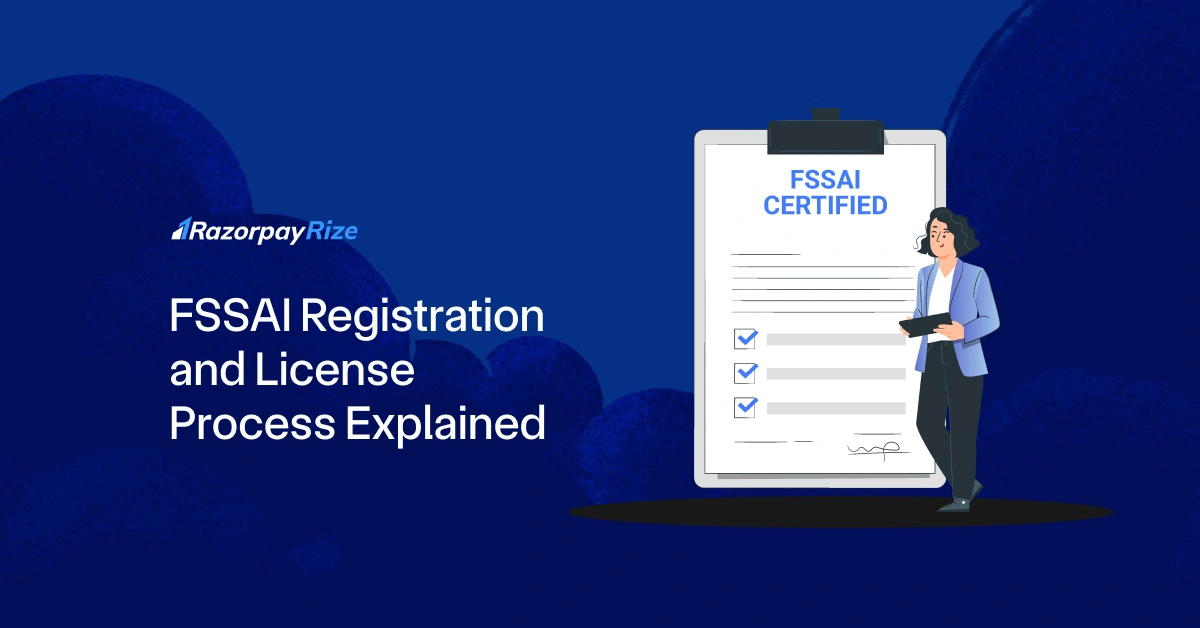Understanding a company's ownership structure is crucial for investors to make informed decisions. While financial performance and competitive analysis are important, the shareholding pattern provides valuable insights into who controls the company and how much personal stake they have in its success.
In this article, we'll dive deep into what a shareholding pattern is, why it matters, and how to analyse it effectively.
Table of Contents
What is a Shareholding Pattern?
A shareholding pattern is essentially a report that outlines the proportion of a company's shares held by different categories of investors. Think of it like a cake that's divided into slices of varying sizes, with each slice representing a different type of shareholder. Just as the size of each slice tells you how much of the cake belongs to whom, a company's shareholding pattern reveals who owns how much of the company's equity.
This information is vital for investors because it helps them understand the level of control and influence different shareholders have over the company. For instance, if the promoters (founders and their associates) hold a significant portion of the shares, they are likely to have a greater say in the company's strategic decisions. On the other hand, a company with a diversified shareholding pattern, where no single entity holds a majority stake, may be less susceptible to the whims of a few powerful shareholders.
Starting your company? Get expert help with company registration and set up a clear, compliant shareholding structure from day one.
Analysis of Shareholding Pattern
When it comes to shareholding pattern analysis, there are a few key thumb rules that investors should keep in mind:
- Promoter Stake: Generally, a higher promoter stake is seen as a positive sign, as it indicates that the founders have skin in the game and are confident about the company's future prospects. However, if the promoter stake is too high (say, above 75%), it could be a red flag, as it allows them to make decisions that may not always be in the best interest of minority shareholders.
- Institutional Holding: A significant holding by institutional investors, such as mutual funds and foreign portfolio investors (FPIs), is often viewed favourably. These entities have the expertise and resources to thoroughly analyse a company before investing, so their presence acts as a vote of confidence.
- Public Shareholding: A higher public shareholding (retail investors and high net-worth individuals) is generally desirable, as it indicates broader participation and better liquidity in the stock.
- Changes Over Time: It's important to track changes in the shareholding pattern over time. For example, if promoters are consistently selling their shares or if institutional investors are steadily increasing their stake, it could signal a shift in the company's prospects or investor sentiment.
Real-life examples can help illustrate these points. Jeff Bezos gradually reduced his Amazon stake to fund ventures like Blue Origin and diversify wealth. Despite this, Amazon remains a market leader and investor favourite—showing that stake reduction isn't always a negative signal.
Who Owns Shares in a Company?
A company's shareholding is typically divided among four main categories of investors:
- Promoters: Promoters are the founders and controlling shareholders of the company. They are involved in the day-to-day management and decision-making processes. A high promoter stake often indicates their confidence in the company's future prospects.
- Public Investors: Public shareholders include individual retail investors who buy and sell shares through the stock market. While each individual investor may hold a small percentage, collectively, they can own a significant portion of the company.
- Institutional Investors: Institutional investors are professional investment firms such as mutual funds, insurance companies, foreign institutional investors (FIIs), and domestic institutional investors (DIIs). Their large holdings can influence the company's stock price and management decisions.
- Employees: Many companies offer employee stock ownership plans (ESOPs) as part of their compensation packages. Employees who own shares have a vested interest in the company's success.
Here's a simple example: Imagine Yum Yum Foods is a popular restaurant chain. The founders (promoters) own 50%, mutual funds own 20%, foreign investors own 10%, and the remaining 20% is with the public. This ownership pattern shows the promoters have significant control, institutions are confident, and there's enough public float for good liquidity.
Why Should You Care About the Shareholding Pattern?
As an investor, paying attention to a company's shareholding pattern is crucial for several reasons:
- Control: The shareholding pattern reveals who has control over the company's decision-making. If a single entity (like the promoters) holds a majority stake, they can significantly influence the company's direction.
- Investor Confidence: A diversified shareholding pattern with a significant institutional presence signals that the company is trustworthy and has a strong growth potential. On the flip side, if promoters or key investors are exiting the company, it could be a warning sign.
- Liquidity: Companies with a higher public shareholding tend to have better liquidity, making it easier for investors to buy and sell shares.
- Risk Assessment: By analysing the shareholding pattern, investors can identify potential red flags, such as a high promoter pledge (promoters using their shares as collateral for loans) or a low free float (shares available for trading).
Think of it like buying a used car. You'd want to know who the previous owners were, how long they held it, and why they sold it. The car's ownership history gives you clues about its quality and reliability. Similarly, a company's shareholding pattern and changes in it over time provide insights into its attractiveness as an investment.
By paying attention to the shareholding pattern, you can assess the level of risk and potential rewards associated with investing in a company.
Ways to Check the Shareholding Pattern of a Company
There are three main ways to check a company's shareholding pattern:
- Company website: Most companies have an 'Investor Relations' section on their website where they post shareholding pattern reports quarterly.
Steps to Check SHP on a Company’s Website:
1. Visit the official website of the company
2. Navigate to the Investor Relations or Investors section
3. Look for ‘Shareholding Pattern’, ‘Corporate Disclosures’, or ‘Regulatory Filings’
4. Open and download the report
- Stock exchange websites:
Both NSE and BSE provide shareholding data for all listed companies.
For NSE:
Visit www.nseindia.com
Search for the company
Click the name → go to ‘Financials’ → ‘Shareholding Pattern’
For BSE:
Visit www.bseindia.com
Search by company name or code
On the left menu, click ‘Shareholding Pattern’
- MCA website: The Ministry of Corporate Affairs (MCA) maintains a database of all registered companies in India. For a small fee of ₹50, you can access a company's shareholding information and other financial filings.
Steps to Check Shareholding Pattern via MCA:
1. Visit www.mca.gov.in
2. Click on ‘MCA Services’ → ‘View Public Documents’
3. Search for the company by name or CIN (Corporate Identification Number)
4. Pay ₹50 per document (e.g., Form MGT-7 includes the shareholding pattern)
5. Download the document after payment.
Some experts favour high promoter and institutional holdings for long-term stability, while others prefer diversified ownership for better governance. Ultimately, SHP is one of several factors, alongside financials, growth, and management to consider when investing.
Conclusion
Understanding a company’s shareholding pattern helps investors gauge control, confidence, and risks. It offers insight into governance through promoter, institutional, and public holdings. While not the sole metric, it plays a vital role in evaluating a company’s outlook.
Smart investors always include SHP in their due diligence.
Frequently Asked Questions
Private Limited Company
(Pvt. Ltd.)
- Service-based businesses
- Businesses looking to issue shares
- Businesses seeking investment through equity-based funding
Limited Liability Partnership
(LLP)
- Professional services
- Firms seeking any capital contribution from Partners
- Firms sharing resources with limited liability
One Person Company
(OPC)
- Freelancers, Small-scale businesses
- Businesses looking for minimal compliance
- Businesses looking for single-ownership
Private Limited Company
(Pvt. Ltd.)
- Service-based businesses
- Businesses looking to issue shares
- Businesses seeking investment through equity-based funding
One Person Company
(OPC)
- Freelancers, Small-scale businesses
- Businesses looking for minimal compliance
- Businesses looking for single-ownership
Private Limited Company
(Pvt. Ltd.)
- Service-based businesses
- Businesses looking to issue shares
- Businesses seeking investment through equity-based funding
Limited Liability Partnership
(LLP)
- Professional services
- Firms seeking any capital contribution from Partners
- Firms sharing resources with limited liability
Frequently Asked Questions
What is the best shareholding pattern?
There's no one 'best' shareholding pattern. However, a good mix would be:
- Promoter holding between 30-60%
- Institutional holding between 10-30%
- Public holding between 20-40%
This ensures promoters have skin in the game, institutions are confident, and there's adequate
What is the shareholder pattern of a company?
The shareholder pattern shows what percentage of a company's shares are held by promoters, institutions, public, and others. It's disclosed quarterly by listed companies.
Where can I find the shareholding pattern?
You can find a company's shareholding pattern on its website, stock exchange portals like NSE and BSE, and the MCA website.
How can I check a company's shareholding pattern?
To check a company's shareholding pattern:
- Go to the NSE or BSE website
- Search for the company by name
- Go to the 'Shareholding Pattern' tab and download the latest report
- Alternatively, check the company's website Investor Relations section
Why does it matter if promoters or big investors buy or sell shares?
Significant changes in promoter or institutional holdings can impact market sentiment and stock prices. Promoters buying more shares may signal their confidence in the company, while selling may indicate a loss of confidence or financial distress.






.webp)









